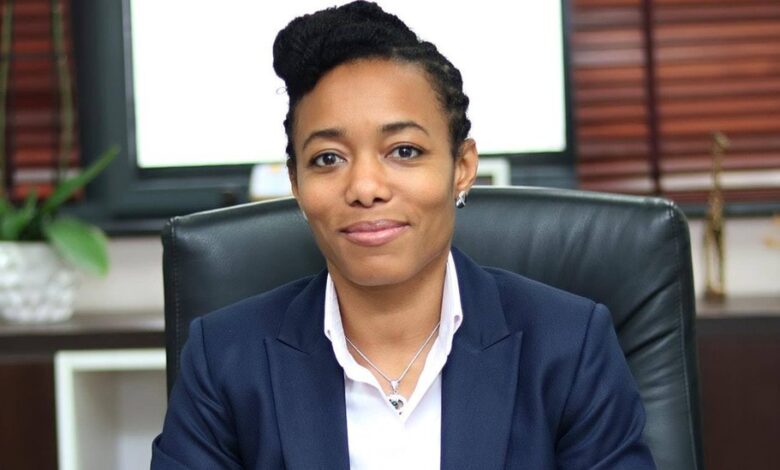
Ouagadougou, Burkina Faso – Member of Parliament for the Korle Klottey Constituency, Dr. Zanetor Agyeman-Rawlings, has praised the government and people of Burkina Faso for the inauguration of the Thomas Sankara Mausoleum—a monumental tribute to the revolutionary leader and his 12 comrades who were assassinated in 1987.
The mausoleum, built on the exact site of their killing in Ouagadougou, serves as both a symbolic and physical preservation of history, combining contemporary architecture with traditional Burkinabe craftsmanship.
The site spans 20 hectares and includes a museum, library, exhibition hall, and other public facilities.
A towering 87-meter monument is also expected to be completed by 2028 as part of the broader Thomas Sankara Memorial, first launched in 2020.
Dr. Zanetor Rawlings emphasized that the inauguration marks a profound moment for Burkina Faso in terms of historical remembrance and national identity.
“Aside from the fact that it actually brought together a lot of heads of state and representatives of various countries in the sub-region, it also is a very important milestone in terms of a country understanding the significance of its history and paying tribute to its history and making sure that current generations don’t forget their history in order to be able to chart a forward path,” she said.
She further noted that the construction of the mausoleum demonstrates Burkina Faso’s commitment to honouring its heroes.
“And I think that the mausoleum that has been set up in honor of the late Captain Thomas Sankara and his 12 comrades who were slain in 1987 is really just a testament of the value that Burkina Faso places on its history and on its heroes,” she stated.
Ghana was represented at the event by a high-level delegation including Minister for the Interior Hon. Muntaka Mohammed, Minister of Defense Dr. Omane Boamah, Minister for Government Communications Felix Kwakye Ofosu, Col. Larry Gbevlo-Lartey (Ghana’s liaison to the Alliance of Sahel States), Naval Captain Baffuor Asaase-Gyimah, Dr. Zanetor Rawlings, and other dignitaries.
Dr. Zanetor explained that the size and composition of Ghana’s delegation underscored the shared historical and political ties between the two nations.
“The presence of Ghana here, a big delegation from Ghana, as well as representatives of President Rawlings’ family, myself and two of my siblings here on behalf of the family as well, is really a show of solidarity of what the history that our two countries have in common,” she said.
She also reflected on the broader symbolism of the event within the current geopolitical context in West Africa.
“But I think that beyond that, it’s also an important milestone in that with the current geopolitics, it serves as a rallying point for many of the countries in the sub-region to perhaps take a moment to reflect on what it means to be African, what it means to be West African, and how we identify ourselves within this complex, what has become in many cases a proxy war in the sub-region,” she said.
Dr. Zanetor called on African leaders to respond to the high expectations of the continent’s youth, stressing that the future must be built with vision and hope.
“And it’s important because it gives us an opportunity to understand that the youth of our continent really have a very high expectation of where they would like the future of this continent to go. And we need to make sure that in providing leadership and governance, we are providing hope as well. And this monument is supposed to represent hope,” she said.
She also highlighted a powerful gesture by Burkina Faso: naming a street after her father, the late President Jerry John Rawlings, in recognition of his legacy and the historical ties between the two countries.
“I think it’s also a strong message to us in Ghana. I believe within the next 24 hours, there’s going to be a street that’s officially named after the late flight lieutenant president, President Jerry John Rawlings,” she said.
Dr. Zanetor urged Ghanaians to take a cue from Burkina Faso’s example and honour national leaders who have shaped the country’s path.
“I think it’s something that if as Ghanaians we haven’t taken notice of, we should recognize the fact that we should honor our past leaders. And certainly the fact that they have singled out the late President Jerry John Rawlings is significant for Ghana as a country,” she said.
She concluded by stressing the need for stronger collaboration between Ghana and Burkina Faso, especially in confronting regional security threats.
“I believe that moving forward, we need to, in terms of our relationship between Ghana and Burkina Faso, need to understand that the nature of our porous borders, the significance of our common history, means that we have to find creative ways in which we can collaborate to help resolve this issue of violent extremism and terrorism in the sub-region, if indeed we want to create a brighter future for generations to come,” she said.
The inauguration date of May 17 holds historical significance for Burkina Faso, as it marks the start of the Democratic and Popular Revolution in 1983, triggered by the arrest of Thomas Sankara—a moment that changed the course of the nation’s history.
Story by: Emmanuel Romeo Tetteh(#RomeoWrites





